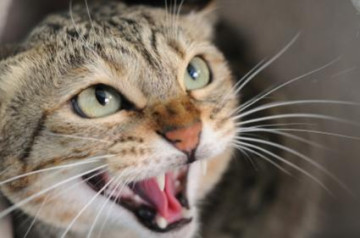NEW: Rabid Cat Confirmed in North Providence
Tuesday, July 03, 2012
A cat has been discovered to have been infected with rabies in the Central Avenue vicinity of North Providence.
According to R.I. State Veterinarian Scott Marshall, DVM, this particular rabies case is high risk because the cat roamed the neighborhood and may have had contact with people and pets. These people may not be aware that they have been exposed to rabies.
Those with domestic animals that may have had contact with this cat should call North Providence Animal Control at 719-1516 so that their pet can be evaluated.
GET THE LATEST BREAKING NEWS HERE -- SIGN UP FOR GOLOCAL FREE DAILY EBLASTAll dogs, cats and ferrets are required by State law to have current vaccination against rabies. Vaccination of pet animals prevents them from contracting rabies, and prevents people from becoming exposed to rabies from their pets. HEALTH and DEM make the following recommendations:
- Make sure dogs, cats and ferrets are properly vaccinated against rabies. It is the law
- Avoid all contact with stray, wild or free-roaming domestic animals
- Call HEALTH if you have had any contact with a stray, wild or free-roaming domestic animal
- Call your local animal control officer if an animal you own has had contact with a stray, wild or free-roaming domestic animal
- Secure all trash so that animals will not be attracted to it
- Do not feed animals outdoors, as this will attract other animals. This is especially dangerous when feeding large numbers of free-roaming cats
- Do not leave pets outdoors loose or unattended.
Related Articles
- Providence to Open New Animal Shelter
- RI One of Best States for Anti-Animal Cruelty Laws
- Shepard Fairey Steps Up for Animals
- Haircutting Marathon to Raise Funds for Bristol Animal Shelter



